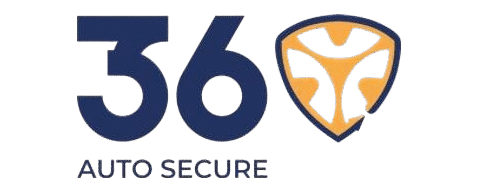Imagine driving down a busy Nigerian road when suddenly, a stray rock hits your car window. What if that window shatters, exposing you and your passengers to danger? This scenario isn’t just a fear—it’s a reality many face on the roads today. With rising safety concerns and an increase in vehicle theft, glass fortification for cars is no longer a luxury; it’s becoming a necessity.
As we delve into this vital topic, we’ll explore what glass fortification is, the benefits it offers, and why it’s particularly important for Nigerian drivers. By the end of this article, you’ll understand why investing in fortified glass could be one of the smartest choices you make for your vehicle.
What is Glass Fortification?
Glass fortification refers to the process of enhancing the strength and durability of car windows. This is achieved through various methods, including the use of specialized materials and technologies designed to resist impacts. Unlike standard car windows, which can shatter easily, fortified glass is engineered to withstand significant force, making it a crucial feature for enhancing vehicle safety.
In Nigeria, where road conditions can be unpredictable and accidents are unfortunately common, having fortified glass in your vehicle can provide an added layer of protection. It’s not just about resisting breakage; it’s about ensuring peace of mind while you’re on the road.
The Importance of Glass Fortification
In Nigeria, road safety is a growing concern. With a high rate of accidents and increasing vehicle thefts, drivers are looking for ways to protect themselves and their passengers. This is where glass fortification becomes essential.
Fortified glass helps mitigate the risk of injuries caused by flying debris during accidents. It also acts as a deterrent against theft, making it harder for intruders to break into vehicles. When considering the safety of your loved ones, investing in glass fortification is not just a smart choice—it’s a necessary one.
With fortified glass, you’re not only safeguarding your vehicle but also enhancing the overall driving experience. You can drive with confidence, knowing that your car is equipped to handle unexpected challenges on the road.
Benefits of Glass Fortification
The advantages of glass fortification go beyond just safety. Here are some key benefits that make it an attractive option for drivers in Nigeria:
Enhanced Safety: Fortified glass is designed to resist shattering, providing crucial protection in the event of an accident. This means that, even if your window is struck by debris, the glass is less likely to break and cause injury to passengers.
Theft Resistance: Regular car windows can be easily broken, making your vehicle an easy target for thieves. Fortified glass significantly increases the time and effort required to break into a car, deterring potential thieves and protecting your belongings.
UV Protection: Fortified glass often comes with added UV protection, which helps shield passengers from harmful sun rays. This not only keeps you safer but can also protect your car’s interior from fading over time.
Improved Insulation: Fortified glass can provide better thermal insulation, helping to maintain a comfortable temperature inside your vehicle. This can be especially beneficial during Nigeria’s hot seasons.
By choosing glass fortification, you’re making a proactive decision to enhance your vehicle’s safety and longevity.
Glass Fortification vs. Tinting
When considering ways to enhance vehicle safety and aesthetics, many drivers may wonder about the difference between glass fortification and window tinting. While both serve distinct purposes, understanding their differences can help you make an informed choice.
Glass Fortification:
Fortified glass is designed specifically to resist impacts and shattering. It’s a safety feature aimed at protecting passengers during accidents and deterring theft.
Fortified glass can be quite thick and often requires professional installation, which may involve a higher initial cost.
Window Tinting:
Tinting primarily focuses on reducing glare and enhancing privacy. While it can offer some protection against UV rays, it doesn’t provide the same level of safety as fortified glass.
Tinting is generally less expensive and easier to apply, but it may not significantly improve the structural integrity of your windows.
In essence, while both options can enhance your driving experience, glass fortification is the superior choice for those prioritizing safety and security on Nigerian roads.
Understanding Bulletproof Glass
You might have heard the term “bulletproof glass” when discussing fortified glass. So, what exactly is fortified glass commonly referred to as?
Fortified glass is engineered to withstand significant impacts, making it a popular choice in high-security applications. While the term “bulletproof” implies that the glass can resist bullets, it’s important to note that no glass is entirely bulletproof; rather, it is bullet-resistant. This type of glass is made by layering polycarbonate and laminated glass, which together create a strong barrier against high-velocity projectiles.
In vehicles, bullet-resistant glass is primarily used in security vehicles for government officials or high-net-worth individuals. However, the principles of fortification apply to all types of glass used in cars, providing enhanced safety features that are beneficial to everyday drivers as well.
Investing in fortified glass can provide an added layer of protection, making it a worthwhile consideration for anyone concerned about safety on the roads.
Safety Glass: Purpose and Types
Safety glass is a term that encompasses various types of glass designed to minimize the risk of injury when broken. In the context of vehicles, understanding the purpose and types of safety glass can help drivers make informed decisions about their car’s glass fortification options.
Types of Safety Glass:
Tempered Glass: This type of glass is heated and then rapidly cooled to increase its strength. When broken, it shatters into small, blunt pieces that reduce the risk of injury. Many car windows use tempered glass for its safety benefits.
Laminated Glass: Laminated glass consists of two or more layers of glass with an interlayer (usually made of polyvinyl butyral) sandwiched between them. This construction helps hold the glass together even when shattered, providing better protection against impacts. This is commonly used in windshields.
Purpose of Safety Glass: The primary goal of safety glass is to protect passengers in the event of an accident or breakage. Whether through tempered or laminated glass, safety glass significantly reduces the chances of injury from sharp edges or flying debris.
Incorporating safety glass into your vehicle not only enhances its overall safety but also contributes to a more secure driving experience, making it a critical consideration for drivers in Nigeria.
Cost of Glass Fortification in Nigeria
When considering glass fortification, one of the most common questions is about the cost. Understanding the factors that influence the price can help you budget effectively for this important safety upgrade.
Factors Affecting the Price of Glass Fortification
Type of Glass: Different types of fortified glass, such as laminated or tempered, come at varying prices. Higher-quality glass typically costs more due to the advanced technology and materials used.
Vehicle Type: The size and model of your vehicle can impact the cost. Larger vehicles or those with specialized windows may incur additional charges for glass fortification.
Installation Fees: Professional installation is essential for ensuring that the fortification is done correctly. Labor costs can vary depending on the service provider.
Average Price Ranges
In Nigeria, the price of glass fortification can range significantly based on the factors mentioned above. On average, you might expect to pay between ₦50,000 and ₦150,000 for basic fortification, while more advanced options could cost upwards of ₦200,000 or more.
It’s important to compare different service providers and what they offer to find the best value for your investment in safety.
Why Choose AutoSecure Glass Fortification?
When it comes to ensuring the safety of your vehicle, choosing the right glass fortification provider is essential. AutoSecure Glass Fortification stands out as a premier option for Nigerian drivers, offering a combination of quality, reliability, and expertise. Here’s why you should consider AutoSecure for your glass fortification needs:
Expertise You Can Trust: With years of experience in the industry, AutoSecure has built a reputation for excellence. Our team of trained professionals specializes in glass fortification, ensuring that every installation meets the highest safety standards.
High-Quality Materials: We use only the best materials for our fortified glass, ensuring maximum durability and protection. Our laminated and tempered glass options are designed to withstand impacts and enhance passenger safety, making them ideal for Nigerian road conditions.
Tailored Solutions: At AutoSecure, we understand that every vehicle and driver has unique needs. We offer customized glass fortification solutions to suit various car models and personal preferences, providing you with the best fit for your vehicle.
Transparent Pricing: We believe in clear and honest pricing. When you choose AutoSecure, you’ll receive a detailed quote with no hidden fees. Our competitive pricing ensures that you get great value for your investment in safety.
Comprehensive Warranty: We stand by our work. AutoSecure offers a warranty on all our glass fortification services, giving you peace of mind knowing that your investment is protected.
Excellent Customer Service: Our commitment to customer satisfaction is unmatched. From your first inquiry to the final installation, our friendly and knowledgeable team is here to assist you every step of the way.
Don’t compromise on safety. Choose AutoSecure Glass Fortification for reliable, high-quality protection for your vehicle. Contact us today to learn more about our services and schedule a consultation!
Frequently Asked Questions (FAQs)
Here are some common questions related to glass fortification that can help clarify any uncertainties:
What is fortified glass called?
Fortified glass is commonly referred to as bullet-resistant glass. While it offers protection against significant impacts, it is essential to note that no glass is entirely bulletproof. Instead, it is designed to resist certain levels of force.
How does glass become bulletproof?
To create bullet-resistant glass, layers of laminated glass and polycarbonate are combined. This construction provides a strong barrier capable of withstanding high-velocity projectiles, making it suitable for security applications in vehicles.
What is the name of bulletproof glass?
Bulletproof glass is often referred to as armored glass or ballistic glass. These terms highlight its ability to resist bullets and other high-impact threats.
What is the purpose of safety glass?
The primary purpose of safety glass is to reduce the risk of injury in the event of breakage. It is designed to withstand impact, minimizing the chances of shards causing harm to passengers. Safety glass is crucial in vehicles to protect occupants during accidents.
What is the price of glass fortification in Nigeria?
The price of glass fortification in Nigeria varies based on factors like the type of glass, vehicle model, and installation fees. On average, you can expect to pay between ₦50,000 and ₦200,000, depending on your specific needs.
What is the cost of glass fortification?
The cost of glass fortification includes materials and installation. At AutoSecure, we provide transparent pricing to ensure you understand what you’re investing in, with no hidden costs.


